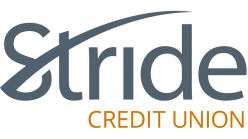
What happens to investments during times of market volatility? Here’s some perspective on investing during times of global social and economic uncertainty.
At a Glance
- Know your investment terms
- Educate yourself about risk
- Consider your opportunities
Know your investment terms
Here are a few key investment terms you should know.
Asset class: An asset class is a group of financial instruments that are similar and governed by the same laws and regulations. The five major asset classes are stocks, bonds, cash, real estate and commodities.
Diversification: This means having a mix of different asset classes in your investment portfolio. One way to minimize risk is to not have all of your money invested in one asset class.
Return: Your return on investment (ROI) is the profit you make on an investment. It can vary greatly among investments and be difficult to predict. Two types of returns are income (through interest or dividends—a payment made to shareholders) and increased value (capital gain, which allows you to sell your investment at a profit). A negative return is when an investment loses value (capital loss).
Risk: Risk is the potential to lose money while investing. It also speaks to the uncertainty about whether your investments will grow enough to achieve your savings goals. Don’t underestimate the impact of inflation on your future finances.
Stock market: Where investors go to buy or sell investments, mostly stocks, which are shares of ownership in a publicly traded company.
Types of investments: In Canada, common types include annuities, bonds, Canada Savings Bonds, Exchange Traded Funds (ETFs), Guaranteed Investment Certificates (GICs), mutual funds, securities, segregated funds, stocks and Treasury bills (T-bills).
Yield: A yield is the earnings an investor receives, through interest and dividends, by holding a particular investment. Yield also refers to the annual profit that an investor receives for an investment.
These are just a few terms to start with so you feel comfortable reading articles and doing research that will help you become more financially literate when it comes to investing your money.
Educate yourself about risk
Now that you know a few basic terms, let’s focus on one of them: risk. A certain amount of risk is always associated with investing in the stock market, but you should know if that risk is high or low.
High-risk investments
These include equities (stocks or shares) and sometimes—depending on the mix of investments included in them—mutuals funds and ETFs.
Low-risk investments
These include guaranteed savings such as guaranteed investment certificates (GICs) and Treasury bills (T-bills), as well as fixed income securities such as government and corporate bonds.
It’s been said many times that the higher the potential return, the higher the risk. A volatile market is a good time for making safer, low-risk investment choices. Avoid anything speculative and don’t put all of your resources into one sector or asset class.
Consider your opportunities
Even in times of uncertainty, there are opportunities. When the stock market tumbles, share prices are low. That means if you have cash on hand, you might consider buying well-established stocks that are known to perform well. They may not only be trading at affordable prices, they might also have good yields.
Right now, some industries are more volatile than others. Oil and gas, travel, hospitality and luxury goods, for example, are more volatile because of the economic slowdown due to Covid-19, while other sectors are booming. Many manufacturers, for instance, have pivoted to mass-produce personal protective equipment (PPE) for the health-care sector.If you are keenly interested in managing your own assets online, such as a TFSA or RRSP, you can take advantage of Stride Credit Union’s online trading and investing platform, Qtrade Investor, through our partner Credential Asset Management.
However you decide to invest your money, make sure to proceed with caution, diversify, always do your research and consult with a professional.
Summary
Just because the economy is in a state of flux doesn’t mean you can’t continue investing your money. Market volatility is just something you can’t control. What you can control, however, is what you know about investing, risk and opportunities.
- Knowing the meaning of key investment terms will help you understand what you read when doing your research on investing.
- Risk—uncertainty about whether an investment will gain or lose value—is a given when you’re investing, but you should know the difference between high and low risk investments and stick to safer choices in a volatile market.
- Even in uncertain times, there are opportunities, but it’s wise to proceed with caution and get a professional opinion before investing.
Please consider the information in this article as a suggestion, not investment advice. Before making any investment decisions, you should always consult an investment professional.
Talk to us today about how we can help you become more confident about investing your money. We’ll help you figure out your best path forward.
If you liked this article, you might want to read
How to Prepare for Financial Uncertainty
